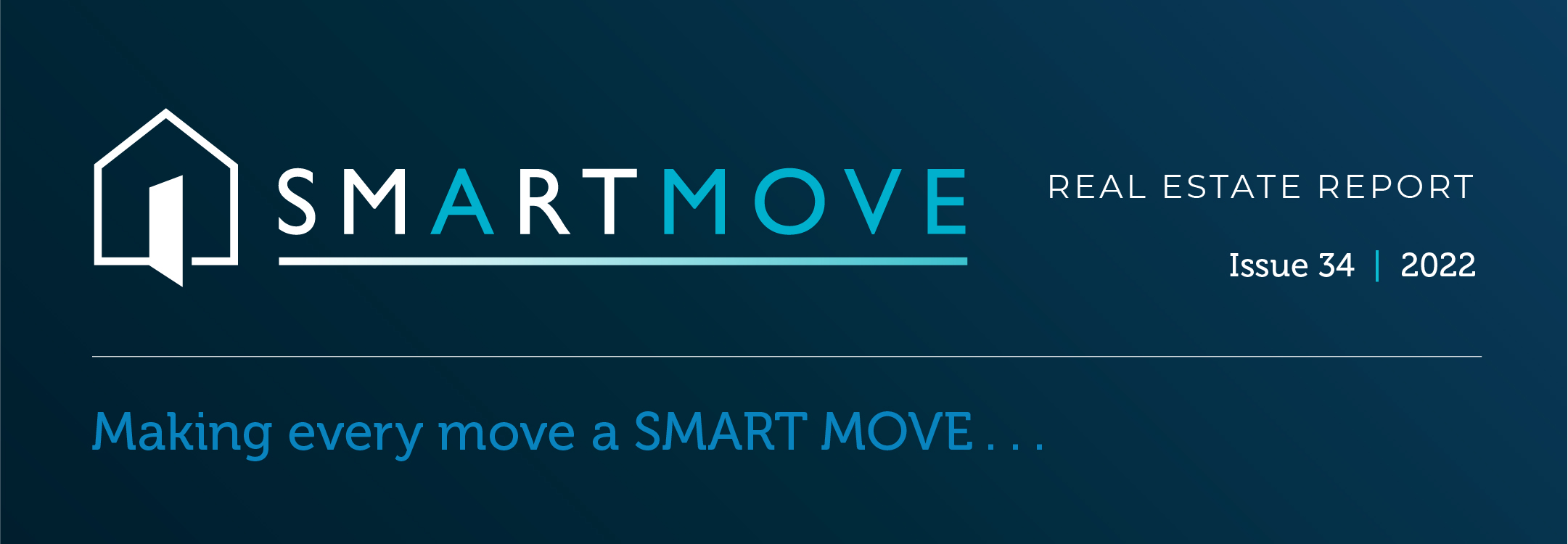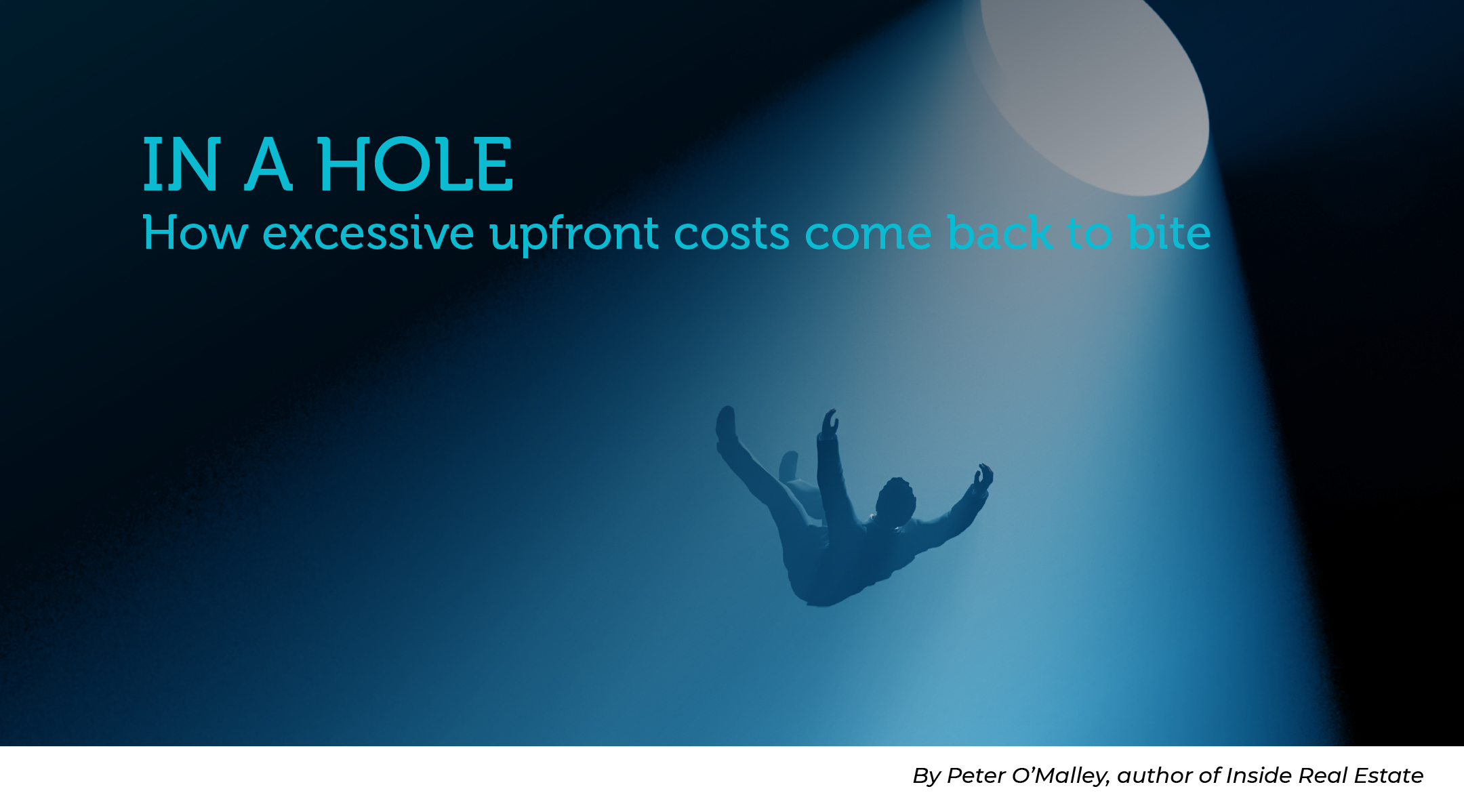Issue 34 - 2022


Your sales campaign can be loaded with upfront costs and when selling your home. In this month’s Real Estate Report we explore the pitfalls and guide you to negotiate a strong position up-front.
The 2022 property market has been challenging for vendors and respite does not appear to be coming over the horizon right now. To achieve a sale, vendors and agents have needed to ensure they had the right sales campaign and pricing strategy in place and a good dash of luck.
One area vendor’s have been unwittingly exposed to is the excessive upfront costs of running a sales campaign. The easiest money in the world to spend is someone else’s. It’s easy for agents to have a flamboyant list of expenses that will aid the sales campaign because they are not the ones paying upfront and carrying the risk.
Many agents are unflinching in their advice to prospective sellers – spend large on advertising, style the property, move the tenant out (sometimes the owner is even asked to move out – truly) and/or do several repairs/works to the property.
If you are expecting say $2 million for your property and you achieve around $2 million, the expenditure is not necessarily painful. However, in the past 6 months where property prices have corrected quite sharply, agents and vendors are finding there is often a gap between expectation and market price. This price gap is neither the agent’s nor the vendor’s fault, it just happens when markets are volatile.
The problem for the vendor is they are often in a financial hole at the end of the sales campaign. They have committed $6,000 – $10,000 on advertising, $7,500 on styling, and in the case of landlords, forfeited $10,000 in rental income because they terminated the tenancy, only to learn the current market price for their property is unacceptably low.

Inexplicably, we have seen agents insist landlords terminate good-paying tenants who present the respective property well – so the agent can have a styled presentation at the vendor’s expense through the sales campaign. What’s worse for the vendor, they must wait 90 days for the tenant’s termination notice to take effect, which in the current environment exposes the vendor to 3 more interest rate rises. Utter madness.
At this point, it’s worth noting that no one really puts their property on the market and spends $20,000 in doing so, in the expectation the campaign will fail to meet its price target. Given auction clearance rates have been systemically stuck at 40% for the past 5 months, that’s exactly what has happened to thousands of vendors across Sydney in 2022.
The vendor commences their sales campaign at the top of the Mountain of Optimism and they end up In a Hole.
To get out of the hole, the vendor needs to drop their price expectations to achieve a sale or withdraw from the market and write off the entire cost of the campaign. This is a classic wedge for the vendor – damned if you do, damned if you don’t. It also gets to the heart as to why the agents were so keen on that upfront expenditure at the beginning of the sales campaign. It’s all crystal clear at the end of the campaign when it’s too late.
To ensure you don’t fall for the upfront sting and end up in a hole, below are some pointers to look out for: Aim to work with good tenants – offer rent reductions in return for a good presentation, if possible. This will ensure income is maintained and you can avoid unnecessary furniture hire.
Tell the agent to wear the cost of the advertising campaign if the best price is below the price the agent quoted you at the time of listing. You will quickly see what the agent really thinks your property is worth.
- Some agents insist on the campaign being paid upfront, while others are happy to wait. Don’t take false comfort in the advertising campaign being ‘payable on sale’ or ‘withdrawal from market’. Ask yourself, who is carrying the risk, here.
- Look for Risk-Free Marketing options such as short database campaigns to garner feedback, or select an agent that will market the property at their cost and risk.
- Avoid long agency agreements where you are potentially bound to an agency against your will.
- Repairs/painting/re-carpeting/landscaping can be a good investment before going to market because you are improving the fundamental offering, the property.
- Remember the buyer is buying the property, not the staging furniture. Sometimes staging is worthwhile, sometimes it isn’t. Make your own assessment, because ultimately you are the one paying the bill.
- Be brutally realistic about what your property is likely to sell for in the current market before you list. Is that figure enough for you to move forward? If you treat the agent selection process like a bidding war between the agents, you will ultimately end up with the highest quoting agent conditioning you down in price over a 6-week period. Many a vendor has experienced their friendly agent taking on a different persona after the vendor has signed in recent times.
If all of the above seems like a ‘risky effort’ you are correct. And it goes a long way to explaining why stock levels have remained low throughout 2022. This is a market for those that really want to sell and/or need to sell. Discretionary, price-motivated vendors are wisely staying on the sidelines, lest they fall down the hole.

As you step into the property market, whether it’s buying, selling or both, you will be hit with a barrage of dialogue and jargon. To assist you practically decipher the dialogue, we have touched on a few below:
Reserve Price – the vendor’s lowest acceptable price at the auction. The property cannot be sold below the vendor’s reserve price, although the reserve can and is often reduced during the auction. Once the auction reaches the reserve price, the vendor must sell the property, and the auctioneer reserves the right to sell the property on the vendor’s behalf.
Vendor’s Bid – the auction has failed to reach the vendor’s reserve and the vendor is entitled to one bid to inform the registered bidders where their position on price is at. A vendor bid is not necessarily the vendor’s official reserve price though.
VPA – stands for Vendor Pay Advertising. The vendor pays for the campaign upfront regardless of the outcome.
66W – this is a certificate signed by the purchaser’s solicitor stating they have explained the rights of the contract to the purchaser. A 66w Certificate makes an exchange of contracts unconditional and not subject to any cooling-off period.
Sales Advice – issued in circumstances where the vendor and the purchaser have agreed on price and terms. Each party’s particulars are then sent to the acting lawyers for formal exchange. At this stage of the process, it’s worth noting that the seller hasn’t sold and the buyers haven’t bought. Agreements can still fall apart at this stage of the process.
Auction Postponed – there is insufficient buyer interest to hold an auction on the scheduled date or there has been a change in arranging for a key party to attend the sale. Most auction postponements are for a few weeks – some do go on to sell on the new auction date, most don’t though. This point highlights one of the downsides for vendors in having a published deadline on the sale, in soft market conditions.
Preliminary clearance rate – the auction clearance rate quoted by the media each Saturday night and Sunday morning is merely the preliminary rate. However, due to timing, it’s the figure most people quote when assessing market performance. Only auction results reported by agents/auctioneers late on a Saturday are calculated in the preliminary rate. History tells us successful auction results are more likely to be reported than failed campaigns. The final auction clearance rate is always lower than the previously used preliminary clearance rate.
Price Guide – not to be confused with an asking price. It is indicative of what the seller hopes and wants plus where the agent is expecting buyer interest to be. Some agents’ Price Guides will quote what the vendor wants, some will be slightly below that as a means of enticing buyers whilst other agents will quote 10 to 20% below the price expectations.
Off-market – the agent and vendor are making an attempt to sell the property without using media websites. Instead, they are reliant on the agent’s database and/or website. The purpose of this is to test the market interest in the respective property without accruing onerous advertising fees.
Expressions of Interest – the agent and vendor are not providing a price guide. They deem the property value difficult to understand and would rather negotiate with interested buyers once they make an offer. This is a common sales method for high-end residential properties and development sites.

Many people become angry when they learn that conditioning is a low-rank, premeditated sales tactic.
Definition of “Conditioning” in real estate terms;
A systematic process employed by real estate agents of communicating bad or negative news to the vendors to drive their price expectations down after they have received the listing.
Irrespective of whether it is shortly after you have signed a listing agreement, or your property has remained unsold for a lengthy period of time, you are always susceptible to being conditioned. Protecting yourself from being conditioned should start before you employ an agent. If you are mid-campaign and your agent begins to condition you, it can be hard to extricate yourself from that agent, particularly if you have signed a lengthy agreement.
Conditioning is most easily identified in circumstances where the agent bombards you with negative news about your home, usually disguised as buyer feedback. You know you are being conditioned when the agent offers few solutions other than to ‘drop the price’.
To protect yourself from being conditioned by the agent, adopt the following strategies before you sign an agreement:
Only sign a short agency agreement – One of the most powerful elements agents adopt to set up the conditioning of ‘overpriced vendors,’ is trapping them into signing a lengthy listing agreement.
If your motivation to sell is high and the listing agreement is long, the agent has all but secured a sale. If the agent has overpriced the home, they will spend the next couple of months whittling the owner’s price expectations down by giving them negative feedback about the property.
By only signing an agency agreement with a short ‘exclusivity period’, you can deliver the ultimate response to an agent who begins to condition you – you can fire them.
Ask for a list of both positive and negative features on your home – A hallmark of conditioning is when an agent praises the property in pursuit of the listing and then highlights every known/possible ‘negative’ once it’s on the market. The agent will act as though the negative feedback from buyers is a complete shock to them too.
Prior to listing with any agent, ask for a list of the positive and negative features of your home, in writing. Then the agent cannot use any negatives listed against your property later as seemingly new information, to get you to lower the price they originally gave you. Ask the agent, ‘How do you propose to overcome those negatives during the sale?’ It may be prudent to shortlist agents with the best responses to this question.
Select your agent based on strategy not price – If your property is priced correctly, the agent won’t have to condition you – they will be too busy negotiating with buyers. The reason agents have ‘overpriced vendors’ is because they ‘overpriced the listing’ to begin with.
Unfortunately, many home sellers select their agent based on the selling price they quote. The big problem here is that it won’t be the agent who buys your property. Select the agent with the best-selling strategy as opposed to the highest selling price quote.
Many people become angry when they learn that conditioning is a low-rank premeditated sales tactic. The key to success is to insure yourself against conditioning before you employ an agent, rather than being left surprised and despondent after giving them the listing.
For more information and tips for selecting the right selling agent, check out our previous article, “How Agency Selection can Make or Break a Successful Sale”.



